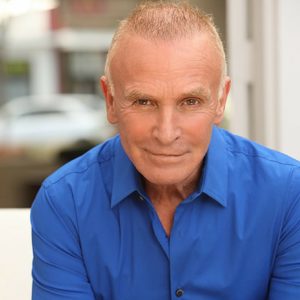- Smoking (Don’t smoke. Period.)
- Weight (Maintain a healthy weight, BMI under 25)
- Exercise (Exercise regularly at least 3.5 hours a week)
- Eat a Healthy Diet (including lots of omega-3 and fiber)
- Alcohol (Drink moderately, or not at all.)
I then talked about basic supplements that every man needs no matter what else: Magnesium, Fish Oil, and Vitamin D3. (Probiotics should also be on that list, but it’s harder to make recommendations on brands because the strains of probiotics used in supplement formulas range all over the map.) I mentioned that for Magnesium I like Natural Calm’s drinkable magnesium, for Fish Oil I like Barlean’s, especially their Swirls formula, and for vitamin D3 it doesn’t much matter- it’s an easy supplement to make, it’s inexpensive, and any good, reputable company will do.
This month I’m going to get into a new generation of supplements, which work not by replacing vitamins and minerals that are missing in our diet, but by turning on circuits in our bodies that are responsible for everything including energy production, producing antioxidants, detoxification and turning on genes associated with longevity.
Resveratrol:Resveratrol, a flavonoid found in wine and the skin of dark grapes, was discovered to “turn on” the same genes that are turned on by calorie reduction. Calorie reduction has extended the life of every species studied from fruit flies to monkeys, and it works by turning on genes called the SIRT genes, which are directly involved in longevity. Resveratrol does the same thing, plus it’s an anti-oxidant, an anti-inflammatory, and it helps activate a protein—AMPK—that’s involved in blood sugar regulation. My preferred brands are Reserveage and Life Extension.
Curcumin: In the past decade, curcumin has been the subject of dozens of academic presentations and hundreds of journal articles. It’s a powerful anti-inflammatory and anti-oxidant that also supports liver health (detoxification). It even boosts a compound in the brain called BDNF—brain-derived neurotrophic factor—that’s linked to improved brain function and a lower risk of brain disease. Curcumin is the name given to the collective group of compounds (curcuminoids) found in turmeric, the super-spice that makes Indian foods and curries yellow. My preferred brands are Meriva 500-Soy Free Curcumin Phytosome by Thorne Research or Curcumin by Terry Naturally.
TruNiagen™ TruNiagen™ is all the rage in the “anti-aging community” for very good reason. It’s been clinically shown to boost the body’s stores of NAD, a co-enzyme upon which just about everything in the cell depends. Detoxification, energy production, cell protection—none of it happens without NAD, and—as luck would have it—we make less NAD as we get older. Taking NAD supplements hasn’t worked out very well, and most of the symptoms of “aging” are correlated with declining NAD stores. TruNiagen™ boosts NAD, which is the main reason I take it every day. Right now you can only get TruNiagen™ online at TruNiagen.com, but you can learn about what the science of what it does on the terrific educational site, AboutNAD.com
Green Tea Extract: Green tea activates just about every anti-aging, life-enhancing metabolic pathway in the body. It turns on Nrf2, a pathway which has been the subject of a lot of buzz at conferences on aging, supplements and biohacking. That’s because the Nrf2 pathway has been referred to as the “master regulator of antioxidant, detoxification and cell defense gene expression”. No less an authority than Dr. David Perlmutter recently referred to it as a “fascinating area of biochemistry that plays a pivotal role in all degenerative conditions that we as humans want to avoid”. Green tea extract turns on that Nrf2 pathway, and that’s really all we need to know about that! (It doesn’t hurt that green tea compounds have been found to have a positive effect on many other things including weight loss and cancer.)
Berberine: Found in a huge variety of plants and with a 3000-plus year history of being used in Traditional Chinese Medicine, berberine has become a superstar supplement for the 21stcentury. It seems to improve learning and memory, it supports gut health, it improves inflammation and blood sugar, and, like resveratrol, turns on AMPK—an enzyme which, as mentioned, helps us to metabolize sugar.
Metformin: It may seem strange to include a diabetes drug—which is what Metformin actually is—in a list like this. But at conference after conference, presenters have been showing data that suggest that metformin has all kinds of positive effects, and may even be thought of as an “anti-aging” drug. In fact, the NIH (National Institute of Health) is investigating it for just that reason, as a recent 60 Minutes story revealed. It also helps control blood sugar, which is why it’s usually prescribed, but age-management docs are beginning to prescribe it “off-label” for all its other wonderful benefits.
Melatonin: Most of us know melatonin as the “jet lag vitamin”. But it’s actually a hormone and it has multiple benefits to humans besides helping to regulate our circadian cycles. Blind women get a lot less breast cancer than sighted women, and it’s been suggested that melatonin (which is produced in darkness, when we sleep) may be the answer. Larger doses of melatonin (like 20mg) are often given in integrative cancer protocols.
Quercetin: This is truly one of the great superstar compounds found in food. A flavonoid that’s a super anti-inflammatory, it’s found mainly in apples, onions and supplements. One company that makes a good quercetin in a meaningful dose (1000mg) is Jarrow.
Sulforaphane(broccoli extract): Our grandmothers always knew that broccoli was good for us, andwealways knew our grandmothers were wise. We were right. The voluminous amount of research supporting grandma’s recommendations confirms it. Broccoli—among many other things—contains an incredible compound called sulforaphane, which is one of the most powerful detoxifiers in the plant kingdom. It’s anti-cancer, anti-inflammatory, combats H. pylori, improves liver function, and may help the heart and brain. My favorite brand of broccoli extract (sulforaphane) is Crucera-SGS™_by Thorne Research.
Collagen: Collagen is the most abundant protein in the body and the stuff upon which connective tissue (skin, joints) depend. Guess what? You make less and less of it every decade after 20, and after 40-- game over. Lost collagen is one reason skin wrinkles and joints hurt. Supplemental collagen has been a boom industry—think bone broth diets (a great source of collagen) and collagen protein powders. For supplemental collagen it’s hard to beat NeoCell, a company that’s been making high-quality collagen for almost 20 years, well before the current fad. (Interesting tidbit—NeoCell was founded two decades ago by a gentleman in his 70’s who believed collagen supplements saved his life and wanted to bring them to the world. He lived till 91.)
Next month, it’s time to go into hormones. And yes, I’ll be covering all those “Low-T” clinics you keep hearing about! Stay tuned.
Anti-Aging for Men Only, Part One
Jonny Bowden, “the Nutrition Myth Buster,” is a board-certified nutritionist and the
 best-selling author of 15 books including The Great Cholesterol Myth, Living Low Carb, the 150 Healthiest Foods On Earth and Smart Fat. To learn more about healthy living, motivation and nutrition, visit jonnybowden.com.
best-selling author of 15 books including The Great Cholesterol Myth, Living Low Carb, the 150 Healthiest Foods On Earth and Smart Fat. To learn more about healthy living, motivation and nutrition, visit jonnybowden.com. Note: The statements presented in this column should not be considered medical advice or a way to diagnose or treat any disease or illness. Dietary supplements do not treat, cure or prevent any disease. Always seek the advice of a medical professional before altering your daily dietary regimen. The opinions presented here are those of the writer.










